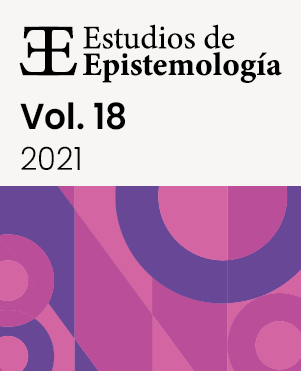
Published 2021-05-02
Keywords
- Logic,
- Ethics,
- Deontology
How to Cite

This work is licensed under a Creative Commons Attribution-NonCommercial-NoDerivatives 4.0 International License.
Abstract
Throughout its development, logic stands as an autonomous science or discipline that is, it does not depend on any other science to account for its methodology and object of study. There are great logicians as Frege and Russell who have considered that mathematics had to be justified by logic. In this way, although in its beginnings logic was a fully philosophical discipline, it does not seem to be united or in intentional relationship with any other philosophical discipline. However, in recent years certain logicians have focused on the possible relationship between logic and ethics. The aim of this work is to review this relationship in a succinct way and taking into account what was expressed by some logicians. In order to achieve this objective, we will first investigate certain definitions of what logic and ethics are. Then we will deepen into a proposal by the philosopher Charles S. Peirce about the relationship between ethics and logic. Later we will analyze the considerations of the relationship given by Martin-Löf and Sundholm to contrast them with what was previously stated. Thus we intend to show that logic is a discipline that would have some deontological characteristics and that these have been forgotten by the majority of contemporary logicians.
